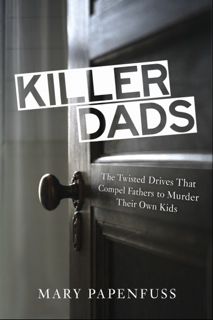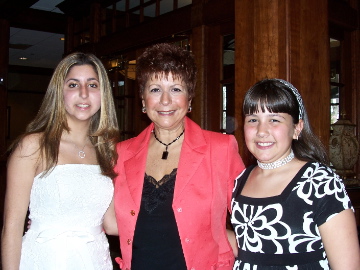In the town I live in, a successful suburban father killed his entire family and then took his life. A new book, Killer Dads explores this case.
“Family annihilation undermines the assumption about human behavior.” – Author, Mary Papenfuss
It’s hard to think about because it’s really the unimaginable – a parent does not kill their child, their wife. Yet, in the leafy, sleepy suburb that I live in an entire family died at the hands of the patriarch. The face they showed the world, was a happy, stable family – a very happy, stable family.
Betty Parente always had a smile on her face. She was the type of person who always said hello, was eager to volunteer and had many friends. If I had to describe her in one word, I would say she was radiant. The mother of two daughters, she reveled in her role as mother. Her husband Bill, by all accounts, was an upstanding citizen – a father, attorney and doting husband.
Life wasn’t always easy. Betty endured fertility issues. She was surprised when she became pregnant at 46 to her second child, Catherine. She also survived breast cancer.
What happened? Bill Parente killed Betty his two daughters, Stephanie and Catherine and then he committed suicide in a hotel room in Maryland. It was likely a premeditated plan as it was an unexpected visit to Loyola University to see Stephanie, although they had just dropped her off at college 48 hours prior.
Photo Christmas cards, lovely dresses, elegant homes, smiling parents, wonderful high-achieving children – the images of an ideal family imploded.
 Why and how can we prevent or predict such violence? Mary Papenfuss, author of Killer Dads tackles the subject of family annihilators. A profile, in her book, of the Parente case reveals that Bill was tormented by financial investments he made on behalf of clients that went bad. He had written checks days before the murder, that he knew would not clear. He was in trouble, investors were asking questions. He took matters into his own hands.
Why and how can we prevent or predict such violence? Mary Papenfuss, author of Killer Dads tackles the subject of family annihilators. A profile, in her book, of the Parente case reveals that Bill was tormented by financial investments he made on behalf of clients that went bad. He had written checks days before the murder, that he knew would not clear. He was in trouble, investors were asking questions. He took matters into his own hands.
In a study conducted by Phillip Resnick, director of forensic psychiatry at Case Western Reserve University in Cleveland, most parents who kill their children are not “insane.” Desperation in a “unique and seemingly inescapable situation” is cited as one of the main reasons for filicide.
Betty had a cadre of caring friends who sustain her memory. Marianne Quinn, a very dear friend, makes a yearly donation, in Betty’s name, to a family impacted by domestic violence while Stephanie’s college friends have created a scholarship in her name. Stephanie’s close friends, college sophomores when the crime occurred, have been deeply affected by their friend’s killing.
I hope that these small positive actions will raise awareness in this country about depression, mental illness, domestic violence, warning signs – something so that children are safe at the hands of their parents, the people they trust the most in the whole world.
Mary Papenfuss will be hosting a reading at Barnes & Noble in Manhattan at 83rd & Broadway on Thursday, July 18 at 7:00 p.m. All are invited to attend. For further information regarding the Loyola Scholarship contact Amanda Robinson at arrobinson@loyola.edu.














Well, I “liked” the post but felt terrible reading it.
Bringing the event under a microscope – discussing the possible reasons and causes – that is a good thing, so mentioning the book will help.
It really does not appear that such actions cannot be predicted, though.
Perhaps the understanding of what might have gone wrong can help open the way to empathy. I do feel empathy for the man as well as his family, but in no way condone his resolution of the issues that haunted him.
So sad.
I know. I do believe it is likely this behavior is unpredictable. Very frightening and sad.
I neglected to add how pleased I am that you are still “at it”, as am I. Loving it.
It’s hard to comment on something like this. Always leaves me at a loss for words.
Very true, Rosanna. Thanks for reading.